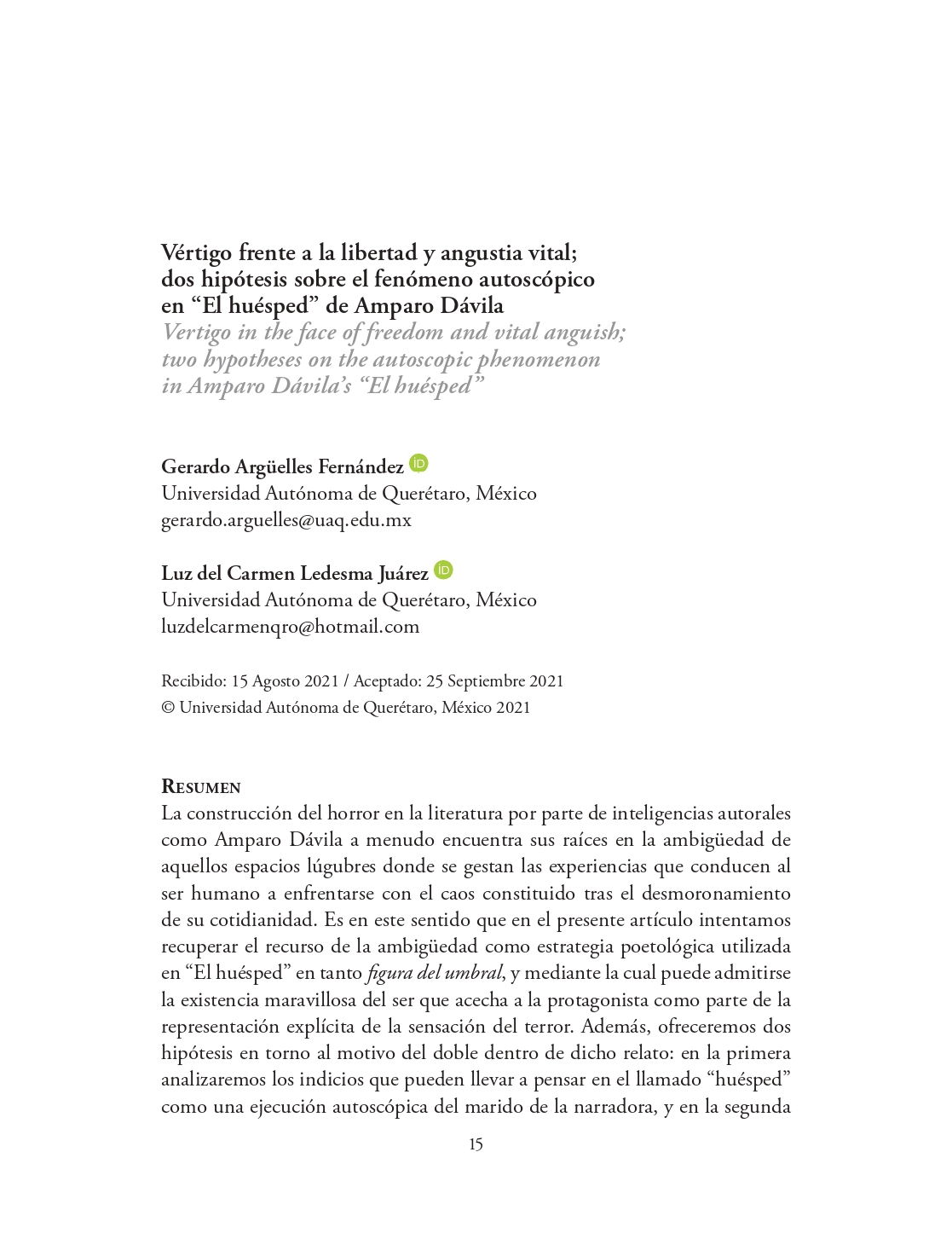Abstract
The construction of horror in literature, performed by authorial intellects such as Amparo Dávila, often finds its roots in the ambiguity of lugubrious spaces, where the experiences that lead human beings to confront the chaos that aroused from the crumbling of their ordinariness are conceived. In this regard, the present disclosure aims to recover the use of ambiguity as a poetological strategy implemented in “The Houseguest” which acts as a threshold figure, that allows the wonderful existence of the creature that haunts the protagonist as part of the explicit representation of the sense of horror. Furthermore, we will propose two hypotheses focused on the purpose of the double in this short story: at the first one we will analyze the elements that may lead to consider the “houseguest” as an autoscopic performance of the narrator’s husband; at the second one, we will explore the struggles that the protagonist has with her desires and her chances for freedom, along with the experiences that plunge her to such a monstrous phenomenon of depersonalization.

This work is licensed under a Creative Commons Attribution 4.0 International License.
Copyright (c) 2021 Diseminaciones


